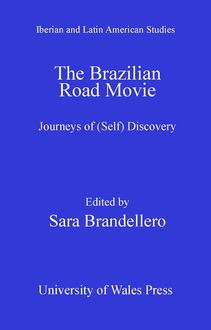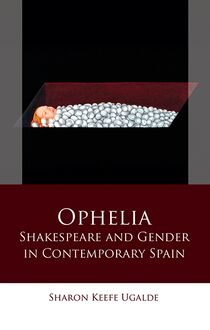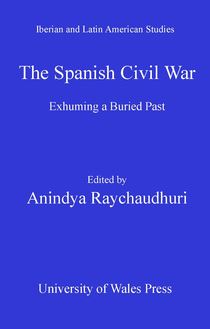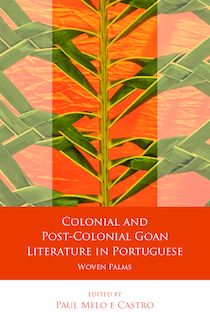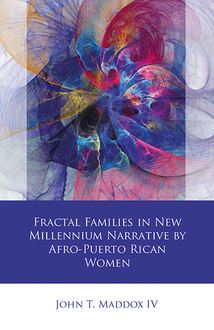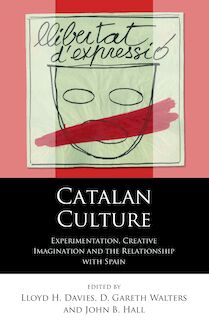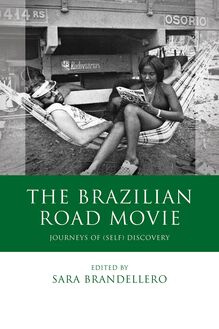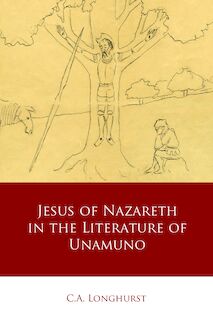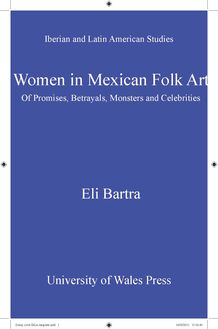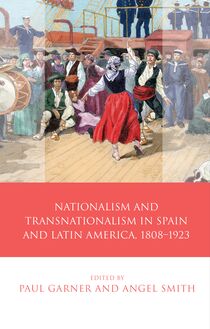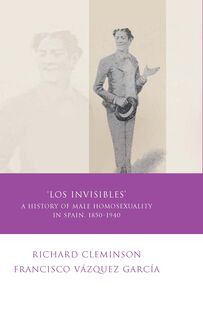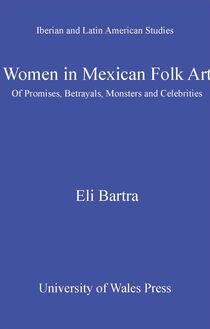Madness and Irrationality in Spanish and Latin American Literature and Culture , livre ebook
132
pages
English
Ebooks
2020
Vous pourrez modifier la taille du texte de cet ouvrage
Obtenez un accès à la bibliothèque pour le consulter en ligne En savoir plus
Découvre YouScribe en t'inscrivant gratuitement
Découvre YouScribe en t'inscrivant gratuitement
132
pages
English
Ebooks
2020
Vous pourrez modifier la taille du texte de cet ouvrage
Obtenez un accès à la bibliothèque pour le consulter en ligne En savoir plus
Publié par
Date de parution
01 juin 2020
Nombre de lectures
1
EAN13
9781786835772
Langue
English
This is the first monograph to consider the significance of madness and irrationality in both Spanish and Spanish American literature. It considers various definitions of ‘madness’ and explores the often contrasting responses, both positive (figural madness as stimulus for literary creativity) and negative (clinical madness representing spiritual confinement and sterility). The concept of national madness is explored with particular reference to Argentina: while, on the one hand, the country’s vast expanses have been seen as conducive to madness, the urban population of Buenos Aires, on the other, appears to be especially dependent on psychoanalytic therapy. The book considers both the work of lesser-known writers such as Nuria Amat, whose personal life is inflected by a form of literary madness, and that of larger literary figures such as José Lezama Lima, whose poetic concepts are suffused with the irrational. The conclusion draws attention to the ‘other side’ of reason as a source of possible originality in a world dominated by the tenets of logic and conventionalised thinking.
Contents
Acknowledgements
1. Introduction
2. The Concept of National Madness: the Argentine Paradigm
3. ‘Voices in the Wilderness’: Conquest and Counter-conquest in Abel Posse
4. Morality, Madness, Memory: Royal Women in Fernando del Paso (Noticias del Imperio) and Lourdes Ortiz (Urraca).
5. Crime, Madness, Art: Alejandra Pizarnik and Manuel Vázquez Montalbán
6. Books about Books: Ruiz Zafón’s La sombra del viento and Pérez-Reverte’s El club Dumas
7. Self-Consciousness and Schizophrenia: the Literary World of Nuria Amat
8. Joy in Paradise: José Lezama Lima
9. Desert, Delirium, Digression: the Fictional Worlds of Juan José Saer
10. Conclusion
Bibliography
Index
Publié par
Date de parution
01 juin 2020
Nombre de lectures
1
EAN13
9781786835772
Langue
English
IBERIAN AND LATIN AMERICAN STUDIES
Madness and Irrationality in Spanish and Latin American Literature and Culture
Series Editors
Professor David George (Swansea University)
Professor Paul Garner (University of Leeds)
Editorial Board
Samuel Amago (University of Virginia)
Roger Bartra (Universidad Autónoma de México)
Paul Castro (University of Glasgow)
Richard Cleminson (University of Leeds)
Catherine Davies (University of London)
Luisa-Elena Delgado (University of Illinois)
Maria Delgado (Central School of Speech and Drama, London)
Will Fowler (University of St Andrews)
David Gies (University of Virginia)
Gareth Walters (Swansea University)
Duncan Wheeler (University of Leeds)
Other titles in the series
Fantastic Short Stories by Women Authors from Spain and Latin America: A Critical Anthology
Patricia Gracía and Teresa López-Pellisa
Carmen Martín Gaite: Poetics, Visual Elements and Space
Ester Bautista Botello
The Spanish Anarchists of Northern Australia: Revolution in the Sugar Cane Fields
Robert Mason
Paulo Emilio Salles Gomes: On Brazil and Global Cinema
Maite Conde and Stephanie Dennison
The Tlatelolco Massacre, Mexico 1968, and the Emotional Triangle of Anger, Grief and Shame: Discourses of Truth(s)
Victoria Carpenter
The Darkening Nation: Race, Neoliberalism and Crisis in Argentina
Ignacio Aguiló
Catalan Culture: Experimentation, creative imagination and the relationship with Spain
Lloyd Hughes Davies, J. B. Hall and D. Gareth Walters
IBERIAN AND LATIN AMERICAN STUDIES
Madness and Irrationality in Spanish and Latin American Literature and Culture
LLOYD HUGHES DAVIES
© Lloyd Hughes Davies, 2020
All rights reserved. No part of this book may be reproduced in any material form (including photocopying or storing it in any medium by electronic means and whether or not transiently or incidentally to some other use of this publication) without the written permission of the copyright owner. Applications for the copyright owner’s written permission to reproduce any part of this publication should be addressed to the University of Wales Press, University Registry, King Edward VII Avenue, Cardiff CF10 3NS.
www.uwp.co.uk
British Library CIP
A catalogue record for this book is available from the British Library.
ISBN 978-1-78683-575-8
e-ISBN 978-1-78683-577-2
The right of Lloyd Hughes Davies to be identified as author of this work has been asserted in accordance with sections 77 and 79 of the Copyright, Designs and Patents Act 1988.
An earlier version of chapter 7, ‘Self-Consciousness and Schizophrenia’, was published in New Readings 13 (2013), 74–92. The author is grateful to the Editor, Dr Tilmann Altenberg, for permission to republish here.
The publisher has no responsibility for the persistence or accuracy of URLs for any external or third-party internet websites referred to in this book, and does not guarantee that any content on such websites is, or will remain, accurate or appropriate.
Cover image © EyeEm / Alamy Stock Photo
Contents
Series Editors’ Foreword
Acknowledgements
1 Introduction
2 The Concept of National Madness: The Argentine Paradigm
3 Voices in the Wilderness’: Conquest and Counter-Conquest in Abel Posse
4 Morality, Madness, Memory: Royal Women in Fernando del Paso and Lourdes Ortiz
5 Crime, Madness, Art: Alejandra Pizarnik and Manuel Vázquez Montalbán
6 Books about Books: Carlos Ruiz Zafón and Arturo Pérez-Reverte
7 Self-Consciousness and Schizophrenia: The Literary World of Nuria Amat
8 Joy in Paradise: José Lezama Lima
9 Desert, Delirium, Digression: The Fictional Worlds of Juan José Saer
10 Conclusion
Notes
Bibliography
Series Editors’ Foreword
Over recent decades the traditional ‘languages and literatures’ model in Spanish departments in universities in the United Kingdom has been superseded by a contextual, interdisciplinary and ‘area studies’ approach to the study of the culture, history, society and politics of the Hispanic and Lusophone worlds – categories that extend far beyond the confines of the Iberian Peninsula, not only in Latin America but also to Spanish-speaking and Lusophone Africa.
In response to these dynamic trends in research priorities and curriculum development, this series is designed to present both disciplinary and interdisciplinary research within the general field of Iberian and Latin American Studies, particularly studies that explore all aspects of Cultural Production (inter alia literature, film, music, dance, sport) in Spanish, Portuguese, Basque, Catalan, Galician and indigenous languages of Latin America. The series also aims to publish research in the History and Politics of the Hispanic and Lusophone worlds, at the level of both the region and the nation-state, as well as on Cultural Studies that explore the shifting terrains of gender, sexual, racial and postcolonial identities in those same regions.
Acknowledgements
This book could not have been written without the enthusiastic support of my students and colleagues at the Department of Modern Languages, Translation and Interpreting, Swansea University and the encouragement and patience of my family and friends.
I made several modifications and additions as a result of comments following presentations at a variety of recent fora including the Romance Studies International Colloquium, Society for Latin American Studies Conferences and departmental research seminars at Swansea. I would like to thank those colleagues who engaged enthusiastically in the discussions.
I am grateful to Swansea University’s College of Arts and Humanities for granting me research leave in 2017 which enabled me to complete several unfinished chapters and to bring the project to completion.
I would like to express my thanks to my former colleague and friend, the late Mr J. B. Hall, who provided unstinting support during the preparation of the current project; to Swansea University library staff, particularly Dr Ian Glen, who rarely failed to locate an elusive reference and to Document Supply colleagues who dealt promptly and efficiently with often challenging requests; and to Ms Sarah Lewis, Head of Commissioning, University of Wales Press, who provided invaluable guidance from an early stage and was consistently sympathetic and accommodating throughout.
I am especially grateful to my partner, June, for her unfailing patience and also for her curiosity, often the source of new ideas and perspectives.
This book is dedicated to the memory of my parents, Mr Elwyn Evan Davies (1917–2012) and Mrs Nesta Hughes Davies (1918–2008).
1
Introduction
While many facets of human life and history have captured the attention of the general public and given rise to specialist areas of study – such as the origins of the species, the exploration of space, the control of disease – it is arguable that one particular phenomenon exerts the most enduring fascination, partly because of its universal relevance and immediacy. Human madness has attracted the attention of writers and commentators since ancient times and drawn diverse and often conflicting perceptions and responses. A major aspect of the fascination of madness is its resistance to interpretation – appearing, in some respects, to be more inaccessible than outer space. It is this quality, perhaps more than any other, that has inspired and frustrated writers and researchers in domains such as the literary, the philosophical and the medical.
Explaining madness proved elusive in the past and remains an apparently insuperable challenge in the present. Writers have often restricted themselves to attempting some kind of minor domestication, often by way of relating madness to some overarching framework of ideas. Screech opens his analysis of Erasmus’s In Praise of Folly by claiming that ‘Madness and Christianity go hand in hand’. 1 Scull makes a similar point, noting that madness surfaces repeatedly in religious texts and practices, particularly in the Bible, which is ‘replete with stories of those bereft of their wits, raving, frenzied, or thrust into the depths of melancholy’. 2 He also notes that madness is an essential component of Greek philosophy since Socrates and refers in particular to Platonic teaching about charismatic madness in the Phaedrus (p. 28). Madness remains a major preoccupation of modern philosophy: Nietzsche, for example, refers approvingly to Plato in the book he began in 1880, Sunrise : ‘Plato was speaking for the whole of humanity when he said: “From madness Greece has derived its greatest benefits”’. 3 Nietzsche’s fascination with madness is also evident in Joyful Wisdom where the story of the Madman presents a parable of perspectivism. 4 In Nietzche’s writing, Dionysus, the god in Greek mythology and literature who induces madness, passion, irrational behaviour and frenzy, stands as a symbol of psychic renewal. 5 In fact, as Saunders and MacNaughton note, ‘madness is one of the great topoi of literature from the classical period onwards’. 6 It is a constant theme across centuries of culture: from Homeric myth and Greek drama to the Elizabethan and Jacobean stage; from the rise of the novel with Don Quixote (published in 1506, it was seen as the most notable literary portrait of the time), to modern writing, particularly by women. Madness also features in film: as Scull notes, as early as 1919, the German director Robert Wiene had produced a classic picture of madness on the screen ( The Cabinet of Dr Caligari ) which ‘prefigured an enduring fascination with the theme of madness among film makers’. 7 In science, madness became the preserve of a new psychological medicine which eventually became known as ‘psychiatry’ in the early twentieth century (pp. 50–1). Madness even influences the course of history, particularly, according to the nineteenth-century Argentine writer, José Antonio Ramos Mejía, that of countries with absolutist governments. Discussing Ramos Mejía’s ‘La locura en la hi
